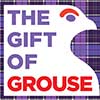By Ross Ewing, Moorland Director at Scottish Land & Estates
(Video highlights from the parliamentary session can be viewed at the end of this blog)
Stakeholders with an interest in the proposed Wildlife Management and Muirburn (Scotland) Bill returned to Holyrood this week for the second evidence session with witnesses.
Legal Adviser, Ashley McCann, led SLE’s evidence on this first panel of the morning examining grouse shoot licensing and following my evidence last week, I returned to parliament to represent the views of our members, this time on muirburn.
These were packed sessions, covering a multitude of related topics. In broad terms, the key points both Ashley and I pursued with MSPs were:
On grouse shoot licensing:
- Licence suspension can be triggered by an investigation, even where NatureScot are not satisfied that the suspect committed the alleged crime to any standard of proof. This provides land managers with no safeguards from vexatious claims and allegations.
- Licences may only be granted or renewed for a maximum period of one year. This provides land managers with a deficit of certainty year-to-year and will disincentivise investment in moorland management.
- The scope of “relevant offences” is much broader than raptor crime. This is unreasonable, disproportionate and will result in grouse moor managers being singled out for tougher penalties in relation to crimes that have no bearing to the management of grouse moors.
- Licence applications are to be determined by NatureScot based on their discretionary assessment of “appropriateness”. This provides land managers with a deficit of certainty year-to-year and will disincentivise investment in moorland management.
On muirburn licensing:
- For peatland licences, muirburn will be the management tool of last resort. This will undermine a land managers ability to manage wildfire risk using the most effective means. The use of back-burning when a wildfire does take hold is not considered at all by the Bill.
- Licences can be suspended or revoked on the basis of an investigation as opposed to robust evidence. This provides land managers with no safeguards from vexatious claims and allegations.
- The applicant is criminally responsible for any false declarations in the licence application. This leaves land managers wide open to the uncertainty associated with where the peat is deeper than 40cm and where it is not.
- The use of peat depth (40cm) to define peatland is arbitrary and problematic. There must be a provision which states that: “it is not an offence to make a false declaration on a peatland licence if guidance followed.”
- Licences can will only be granted if NatureScot think it is “appropriate” to do so. This provides land managers with a deficit of certainty year-to-year and will disincentivise muirburn overall.
We have produced some short highlights videos below from both the grouse shoot licensing and muirburn licensing panels and would encourage you to view those.
Next Wednesday (June 28) sees representatives from the Scottish Government appear before the committee to give their views and we will be watching with interest to see if they recognise the many negative issues this Bill is likely to create for a vital rural business sector.
In the meantime, if anyone wishes to discuss the ongoing Bill process then do not hesitate to contact me.

